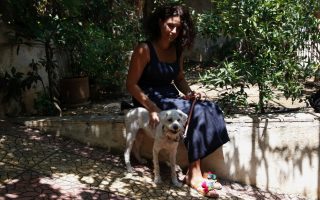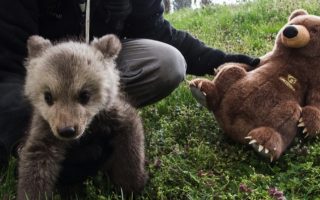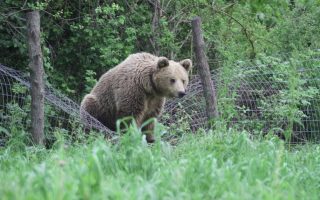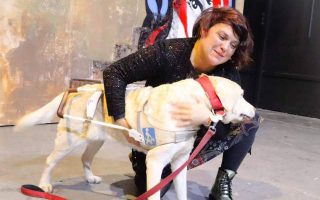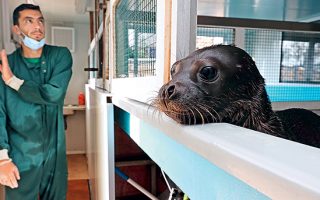A year after Attica fires, animal welfare NGO calls for disaster plan
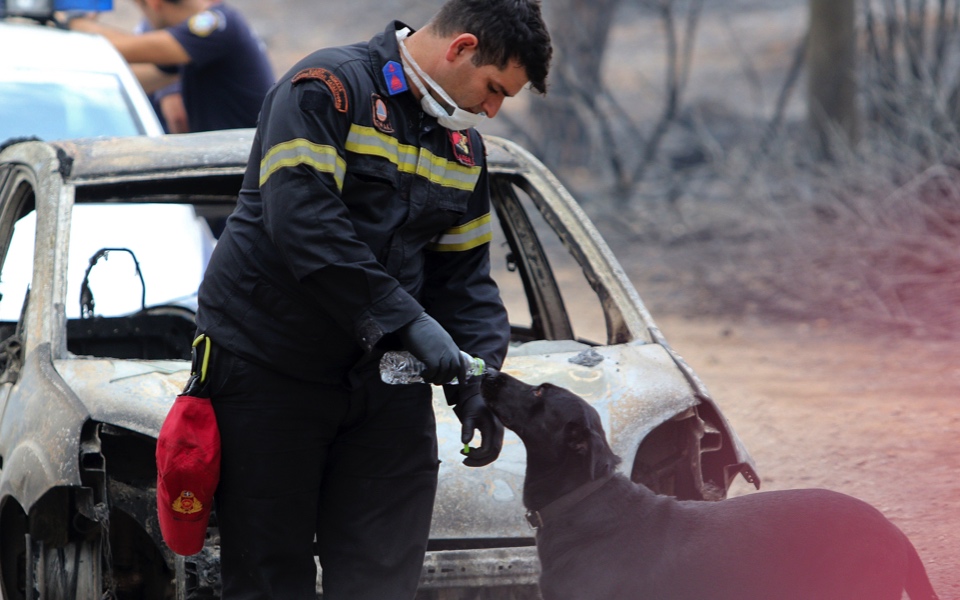
Loukoumakis was only 2 years old when he was discovered in a fire-ravaged home in the east Attica seaside town of Mati after last summer’s devastating wildfires, frightened and injured. The young dog was among 530 animals rescued by Dogs’ Voice, a Greek nonprofit animal welfare group that spearheaded efforts in Mati and other affected areas to locate and treat pets that were trapped in the fires.
One year later, Dogs’ Voice is pushing the state to establish a protection authority for animals that would create a formal state protocol for dealing with the animal victims of natural disasters.
“This is not a job to be performed by our NGO or any NGO,” said Elena Dede, founder and managing director of Dogs’ Voice. “We need to create a digital and policy protocol within each city so that people and the local authorities have a specific process for managing animals in need during a natural disaster.”
In July 2018, in the absence of such protocols, Dogs’ Voice was spurred to action. For 15 days, an administrative team of seven worked tirelessly to transport animals affected by the fires to local veterinarians and foster homes. It was a Herculean effort.
Since those wildfires, the NGO has been working with municipal authorities in different parts of Attica to establish a response system. Using their experience managing the rescue and treatment of animals last year, Dede and her team are developing digital infrastructure that they hope the state will adopt. This includes a public online list of hospitals and clinics willing to care for animals in emergency situations within each district.
“We can now provide a much more efficient solution for our country so that animals can be much more protected if this ever happens again in the future,” Dede said.
Immediately after the initial fires broke out in Kineta, western Attica, last year, Dede’s organization created online fostering forms for the animal victims, for which 1,000 volunteers quickly signed up. Each animal was carefully examined, microchipped, neutered and matched to a suitable home. Within two months, 11 animals had been reunited with their families, 67 transferred to foster homes and 42 adopted.
With the help of local veterinarians, Dogs’ Voice managed to save hundreds of animals, many of which were diagnosed with burns and respiratory problems. Their success, however, was not without challenges.
“These animals stayed with us for months after the incident,” Dede said. “Their medical needs were constant – they didn’t stop at the end of August as did the publicity around the wildfires.”
With donations dwindling, Dogs’ Voice was forced to transfer funds allocated for different purposes to the crisis situation. In the end, they found new homes for all the injured animals, with the last pet adopted in February 2019.
“We provided the most humane management for this time and this area,” Dede said. “We treated every animal with respect. We understood the pain and anxiety that they suffered.”
According to Dede, animal welfare wasn’t widely viewed as a priority until recent years. The establishment of a formal protocol would catapult Greece forward in terms of animal protection and help to avert many of the issues Dogs’ Voice faced last year.
“We have seen firsthand how a city responds to a crisis,” Dede said. “The facts cannot be changed, but what can be changed is how we respond as a state to these crises in the future.”
